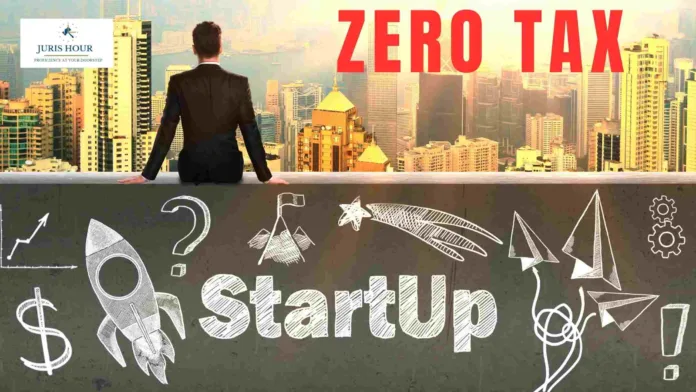The Income Tax Act, 1961 provides a 3 year tax holiday for eligible startups under Section 80-IAC.
Section 80-IAC allows recognized startups to pay zero tax on profits for any three consecutive years within the first ten years of incorporation. The scheme is part of the government’s Startup India initiative, aimed at encouraging innovation and job creation.
To qualify for this exemption, a startup must meet certain eligibility conditions. It should be registered as a Private Limited Company or a Limited Liability Partnership (LLP), recognized on the Startup India portal, less than ten years old, and have an annual turnover not exceeding Rs. 100 crore. Additionally, the business must focus on innovation and demonstrate potential to generate employment and wealth.
The application process is entirely online. Entrepreneurs need to visit startupindia.gov.in and fill out Form 80-IAC. Along with the form, several supporting documents must be uploaded. These include the company’s shareholding pattern, a board resolution, the last three years’ income tax returns and audited financial statements, and a Chartered Accountant’s certificate proving scalability. The scalability requirement can be shown through either 10 percent year-on-year growth, 25 percent growth over two years, or 33 percent growth over three years. A CA’s undertaking certifying that the business is not a spin-off, a pitch deck, intellectual property documents, awards or recognitions, credit rating (optional), employee data in the government-prescribed format, and details of investments and funding also need to be submitted.
The government is required to decide on the application within 120 days. Startups that have previously been rejected are permitted to reapply. Once approved, the exemption applies to three years of profits, which the startup can choose at its discretion within the first decade of its incorporation.
This tax holiday is considered a major incentive for early-stage startups, enabling them to conserve funds and reinvest in growth. Experts note that while the benefit significantly improves cash flow and competitiveness, careful attention to documentation and compliance is critical to secure approval.
With India witnessing a surge in new business registrations, Section 80-IAC is expected to play a key role in strengthening the country’s startup ecosystem and advancing its ambition to become a global startup hub.
Read More: MeitY to Hold 1st Meeting with Online Gaming Industry After New Law Comes Into Force

